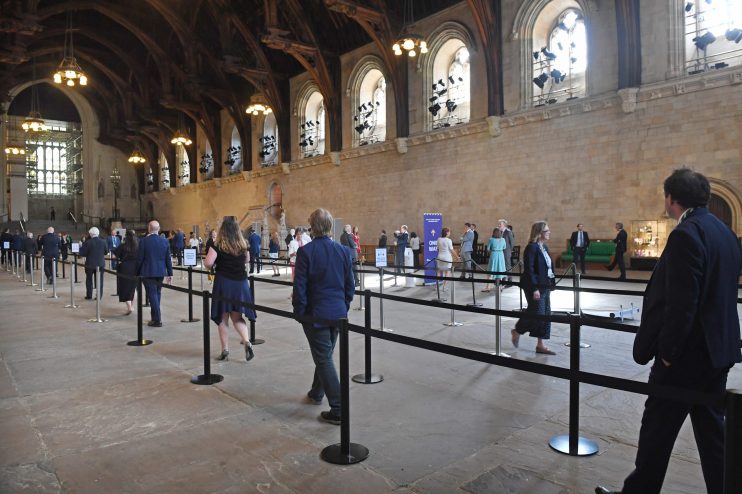Boris Johnson says ‘shielded’ MPs will be able to vote by proxy in parliament

Boris Johnson has said that vulnerable MPs who have been forced to shield away during the coronavirus lockdown will be able to vote in the House of Commons by proxy in an apparent U-turn.
Johnson said at today’s Prime Minister’s Questions (PMQs) that MPs who “have particular difficulties, because they are shielded or they are elderly” will not be forced to wait in kilometre-long queues to vote in the House of Commons
Yesterday, MPs complained of “farcical” scenes as they were forced to queue for up to an hour to vote after the government scrapped its virtual voting procedures.
Queues snaked through the Palace of Westminster and outside into the adjacent New Palace Garden and Portcullis House.
Labour leader Sir Keir Starmer said at PMQs today that it was “unnecessary and unacceptable” and a “clear and obvious case of indirect discrimination under the Equalities Act”.
House leader Jacob Rees-Mogg said socially distanced voting in person was preferable to the continuation of digital voting as “politics is better done face-to-face”.
Before the Open newsletter: Start your day with the City View podcast and key market data
Rees-Mogg also said yesterday that proxy voting would not be allowed for MPs who were not able to attend parliament in person, however the Prime Minister appeared to climb down on that point today.
“I do not think it unreasonable that we ask parliamentarians to come back to this place and do their job for the people of this country,” Johnson said.
“I know it’s difficult, and I apologise for the inconvenience, and I apologise to all those who have particular difficulties because they are shielded or they are elderly, and the change we’re making today is that they should be able to vote by proxy.”
The move to scrap remote voting was criticised by MPs from all sides of the house, with some arguing it would put individuals at higher risk of catching Covid-19 in harm’s way.
Conservative MP Robert Halfon wrote in City A.M. yesterday that most MPs should return to parliament, but that exceptions should be made.
“Those MPs genuinely at risk of Covid-19 or self-isolating in the interests of the public should be able to participate, via the internet as they have been for the past two months or via an MP proxy, in that most fundamental part of being an MP — voting,” he said.